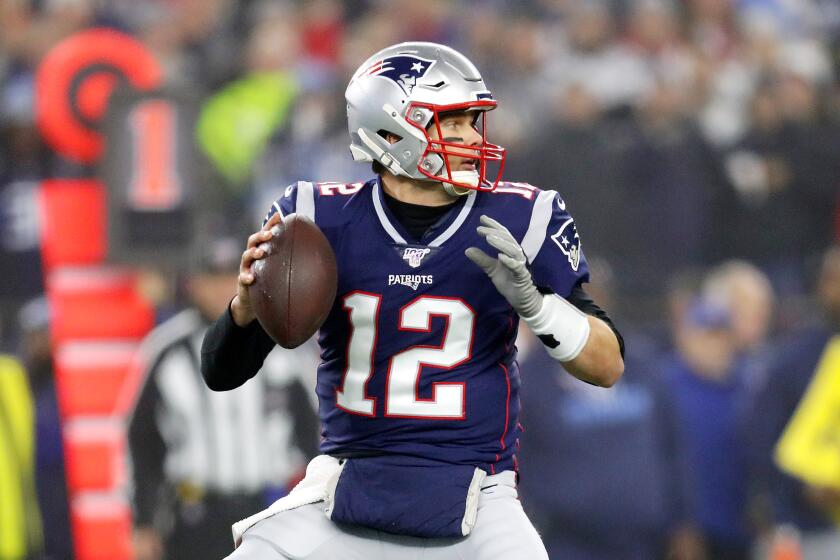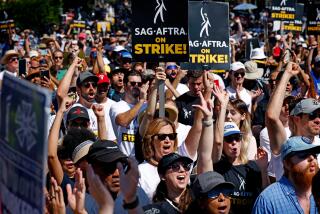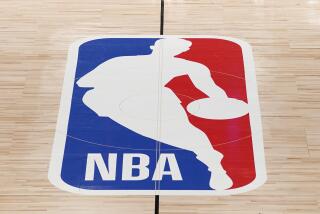NFL players vote to approve collective bargaining agreement proposed by owners
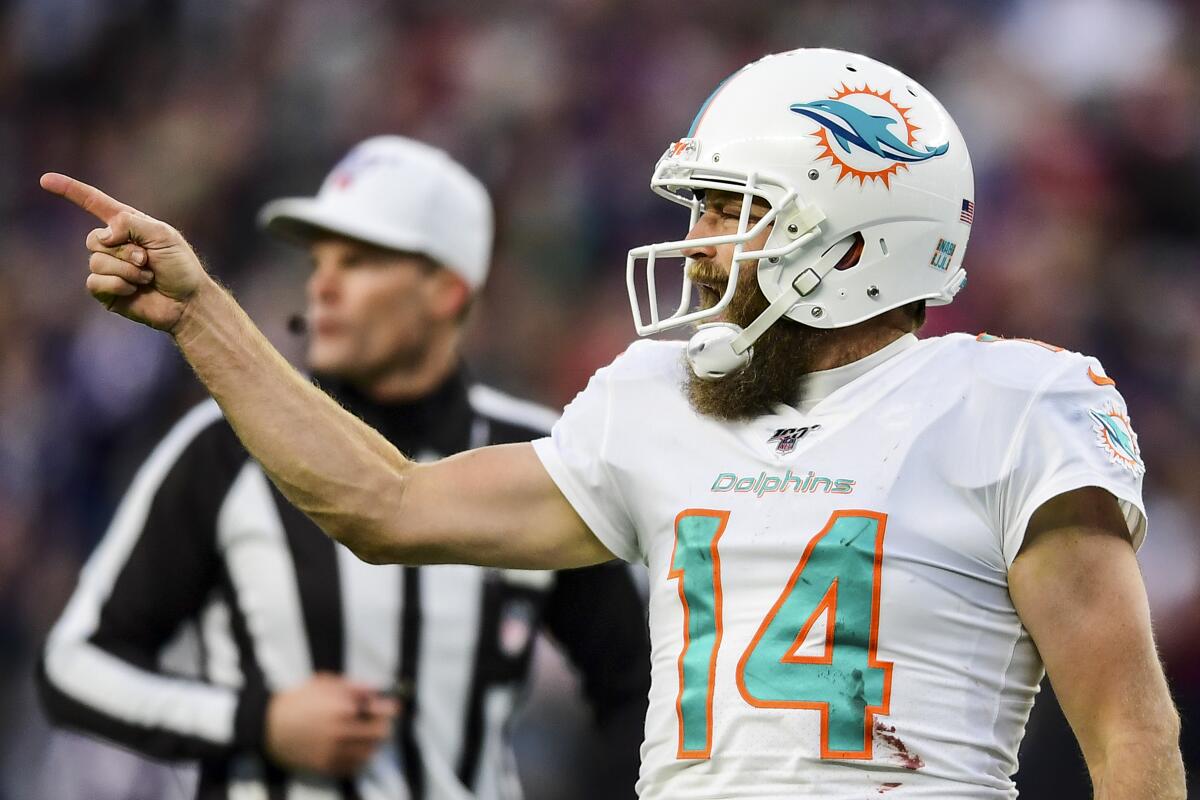
- Share via
The NFL can look forward to another decade of labor peace.
Players have approved a new 10-year collective bargaining agreement that will run through 2030 and, starting in 2021, add a 17th game to the regular season.
The deal, which required a simple majority to pass, was ratified by a vote of 1,019 to 959.
“This result comes after a long and democratic process in accordance with our constitution,” the NFL Players Assn. said Sunday morning in a statement released seven hours after the voting deadline of 11:59 p.m. Eastern time Saturday.
NFL Commissioner Roger Goodell praised the decision.
“We are pleased that the players have voted to ratify the proposed new CBA, which will provide substantial benefits to all current and retired players, increase jobs, ensure continued progress on player safety, and give our fans more and better football,” Goodell said in a written statement. “We appreciate the tireless efforts of the members of the Management Council Executive Committee and the NFLPA leadership, both of whom devoted nearly a year to detailed, good faith negotiations to reach this comprehensive, transformative agreement.”
The accord, which also expands the playoff field from 12 to 14 teams, sets the stage for even more robust media deals, both broadcasting and online.
“This was a very smart decision on the part of the players for all of the stakeholders of the NFL — current players, retired players, future players, the league, the owners, the broadcasters and, most importantly, the fans,” said Marc Ganis, the Chicago-based co-founder of Sportscorp Ltd., a sports consulting firm. “The most important thing that has come out of this decision is that we will have 20 uninterrupted years of NFL football. That is the single most important part of this.”
It’s anyone’s guess if Tom Brady will end up signing with the Chargers in free agency, but the team has been freeing up salary-cap space.
Ganis said the events of the past few weeks — the coronavirus outbreak and the subsequent market fluctuations — might have helped nudge the vote over the goal line.
“The world is far less certain,” he said. “Where some players thought the owners were benefiting most from the length of the contract, what has become evident this past month is that it’s the players who benefit from the length of the contract.”
By the NFL’s reasoning, the 17th game makes it possible to raise minimum salaries, create new performance escalators, enhance injury protections and other benefits for current players, and allow for substantial pension increases as well as additional benefits for retirees. The changes include:
- Salaries for about 1,100 players will increase for the 2020 season and throughout the term of the agreement. A minimum-salary player who was a rookie last year will see a significant pay raise from $495,000 to $675,000. By the fourth year, his salary will have nearly doubled.
- A player injured during the season will receive 100% of his salary up to $2 million, compared with the current 50% and maximum of $1.2 million.
- Every club can bring as many as three players back from injured reserve, compared with two today.
- Padded practices will be limited to 16 per season — currently, teams can have as many as 28 — and players cannot be in pads for more than three consecutive days. There is no such rule now.
- The active roster will be increased by two players and the practice squad by four.
Under the new CBA, the window for substance-abuse testing will be narrowed to two weeks, the threshold for positive marijuana tests will be raised, and suspensions for positive tests will be eliminated. The punishment for positive tests will be limited to fines. That policy, however, does not pertain to performance-enhancing drugs.
“The genius in this is that neither party — the owners nor the players — can opt out of this deal,” Ganis said. “Both are committed to work together over the course of the next 11 years on revenue, player health and safety, and fan engagement.”
David Baker, president of the Pro Football Hall of Fame, sent a letter to Hall of Famers and their families recently endorsing the deal.
“I believe that both sides, the NFL and the players association, united to support the former players,” Baker wrote, according to the Associated Press.
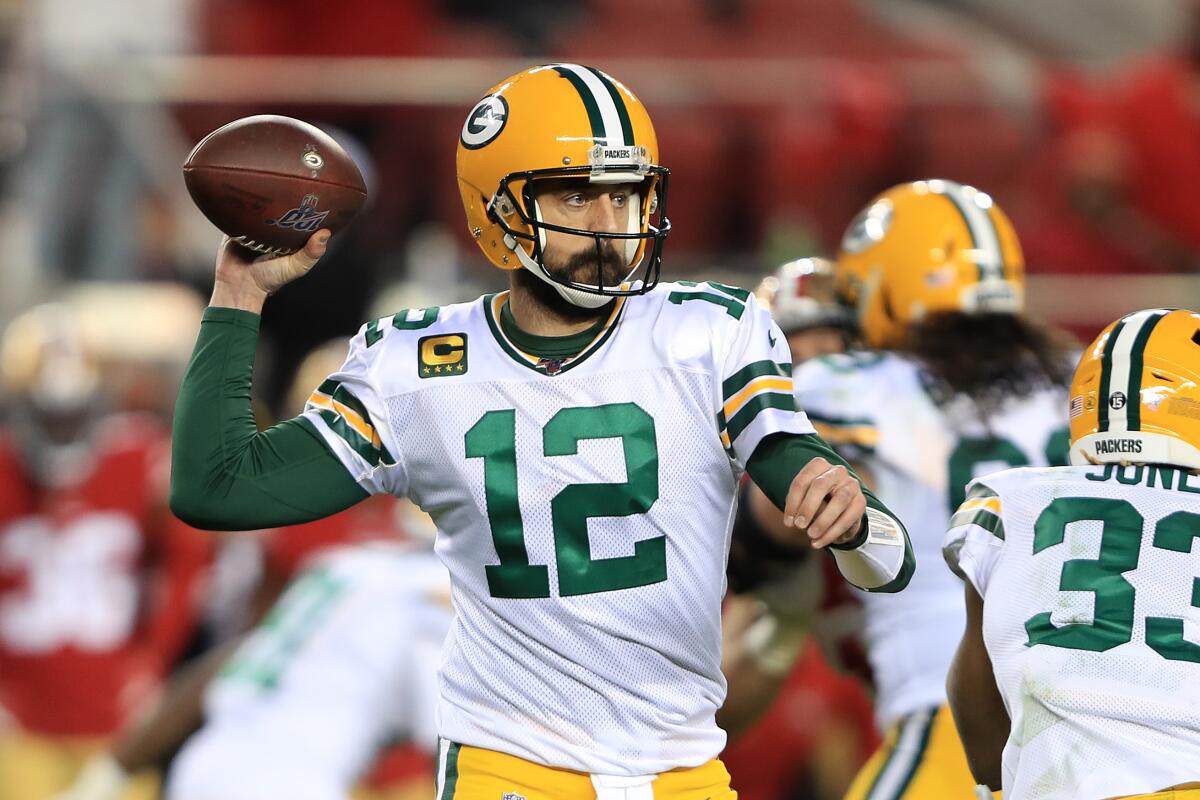
Under the accord, more than 11,000 retirees will see their pensions increase, some by as much as 60%.
Many high-profile players lobbied against the deal, among them San Francisco’s Richard Sherman, Seattle’s Russell Wilson, Houston’s J.J. Watt and Green Bay’s Aaron Rodgers.
“It’s odd to me, and it’s always odd, when you hear player safety is their biggest concern ... but it seems like player safety has a price tag,” Sherman said in January, referring to NFL owners.
“Player safety, up to the point of, ‘Hey, 17 games makes us this much money, so we really don’t care how safe they are, if you’re going to pay us this much money to play another game.’ And so that’s the part that’s really concerning for us as a union and us as players because they think that players have a price tag on their health. I don’t think we’re in the same ballpark in that regard.”
NFL players took to social media to react to the new collective bargaining agreement that was ratified Sunday.
The proposal was hashed out over 10 months of negotiations between the NFL and the players union.
The league’s 32 player representatives voted 17-14-1 in favor of sending the proposal to the entire body of players. For many players, the notion of a 17th game merited more negotiations in light of the health and safety concerns of expanding the schedule.
Rodgers wrote on Twitter that “16 games to me, was never something to be negotiated. The owners made it clear that the 17th game is about paying for the ‘added’ benefits, and had nothing to do with the positive feedback received about any extra risks involved with the added regular season game.”
In the end, a majority of players voted the other way.
More to Read
Go beyond the scoreboard
Get the latest on L.A.'s teams in the daily Sports Report newsletter.
You may occasionally receive promotional content from the Los Angeles Times.

